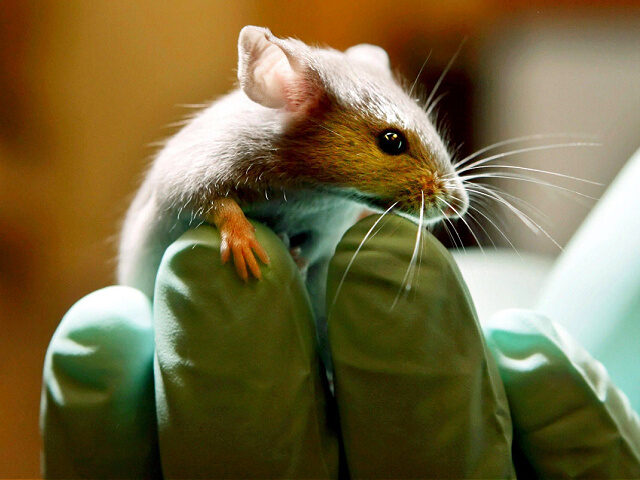Researchers at the state-run Chinese Academy of Sciences (CAS) recently claimed to have engineered the “world’s first mammal with fully reprogrammed genes,” the South China Morning Post (SCMP) reported over the weekend.
The research team allegedly produced a mouse with just 19 pairs of chromosomes — one fewer than occurs naturally. The scientists allegedly achieved this by creating “a complete recombination” of a mouse’s chromosomes. The SCMP described the alleged feat as a “genetic engineering breakthrough that could pave the way for the design and creation of mammal species that do not exist in nature.”
“The mouse – called Xiao Zhu, or ‘Little Bamboo’ – was the world’s first mammal with fully reprogrammed genes, the scientists said, referring to a process where researchers break chromosomes into various segments and put them back together in different combinations to create a new package of genes,” the newspaper relayed.
The Beijing-based scientists said they had “found a novel technique for programmable chromosome fusion successfully producing mice with genetic changes ‘that occur on a million-year evolutionary scale’ in the laboratory,” the science website Interesting Engineering relayed on August 27.
“The result may provide critical insights into how rearrangements of chromosomes—the tidy packages of organized genes, provided in equal number from each parent, which align and trade or blend traits to produce offspring—influence evolution,” Phys.org noted on August 25.
Summarizing the significance of the study’s alleged findings on August 27, Interesting Engineering wrote:
The study claims to have provided important insight into how chromosomal rearrangements may affect evolution by showing that chromosome-level engineering is possible in mammals and by effectively deriving a laboratory house mouse with a novel and sustainable karyotype.
According to Li, such small changes can have a big impact. Humans and gorillas are separated by 1.6 changes in primates. Gorillas have two distinct chromosomes, whereas humans have two fused chromosomes, and a translocation between ancestor human chromosomes resulted in two distinct chromosomes in gorillas.
Individually, fusions or translocations can result in missing or extra chromosomes, as well as diseases like childhood leukemia. While the chromosomes’ consistent reliability is useful for understanding how things work on a short time scale, Li believes that the ability to engineer changes could inform genetic understanding over millennia, including how to correct misaligned or malformed chromosomes.
The study’s co-first author, Li Zhikun is a researcher at the CAS Institute of Zoology and China’s State Key Laboratory of Stem Cell and Reproductive Biology. The study’s other co-first author, Wang Libin, is a researcher for CAS and the Beijing Institute for Stem Cell and Regenerative Medicine. The scientists originally published their findings in the academic journal Science on August 25.

COMMENTS
Please let us know if you're having issues with commenting.